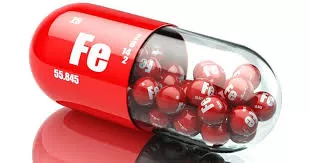A groundbreaking trial has revealed that a single iron infusion in the third trimester can significantly reduce anemia in pregnant women, showing results far superior to the current standard of care—iron tablets. This innovative finding has the potential to revolutionize maternal healthcare globally, improving outcomes for both mothers and their babies.
The study, co-led by the Walter and Eliza Hall Institute of Medical Research (WEHI), is the first to demonstrate that iron infusions in late pregnancy can effectively boost iron levels in pregnant women as they approach delivery. This has significant implications for maternal care and could transform global birth outcomes.
Iron is a crucial nutrient during pregnancy, vital for the health of both the mother and the developing baby. Insufficient iron levels can lead to anemia, which is linked to an increased risk of preterm delivery, low birth weight, and postpartum depression. Additionally, anemia in pregnant women is associated with complications such as chronic fatigue, post-partum hemorrhage, and stillbirths, while also potentially affecting the baby’s brain development and red blood cell formation.
Globally, anemia during pregnancy is a major concern. Around 37% of pregnant women, or nearly 32 million women worldwide, are anemic at any given time. In Australia, anemia affects approximately 25% of pregnancies. In many low-income countries, including Malawi, iron deficiency during pregnancy remains a leading cause of maternal and fetal complications.
The WEHI-led team partnered with researchers at the Training Research Unit of Excellence and Kamuzu University of Health Sciences (Malawi) to investigate the effectiveness of iron infusions versus oral iron tablets in reducing anemia during late pregnancy. Their trial, involving 590 pregnant women, has demonstrated that a single iron infusion in the third trimester significantly outperforms oral iron supplementation.
“While anemia is one of the most avoidable causes of illness and death in resource-poor nations, any woman, anywhere in the world, can become anemic during pregnancy,” said Professor Sant-Rayn Pasricha, a co-corresponding author of the study. “Our findings show that a single iron infusion in the third trimester can achieve what daily oral iron tablets cannot. This is the first conclusive evidence proving that infusions in late pregnancy are the superior treatment for combating anemia.”
The study found that women who received iron infusions had a significantly lower prevalence of anemia—46.7%—at the time of delivery, compared to those who took iron tablets, where the anemia rate was 62.7%. Additionally, iron infusions provided lasting benefits, with improved iron stores even after birth.
“This sustained impact on anemia is a game-changer,” said Professor Pasricha, who also leads the Anemia Research Laboratory at WEHI. “Iron infusions rapidly boost red blood cell production and iron levels at a critical time, ensuring that both mother and baby are better protected during delivery and beyond.”
The research team’s findings are expected to influence global health policies, with the World Health Organization (WHO) currently recommending oral iron tablets as the primary method for preventing maternal anemia. Researchers hope that this new data will inform future global guidelines for antenatal care, ensuring that more pregnant women receive the most effective iron treatment at the right time.
“IV iron can be safely delivered even in basic health centers in remote locations, such as those in Malawi, where our trial took place,” said Professor Pasricha. “If it can be done there, it can be done anywhere.”
As the study’s results gain traction, health organizations around the world will likely re-evaluate their approaches to preventing and treating anemia during pregnancy. This trial stands as a crucial step toward improving maternal health outcomes and ensuring healthier births for millions of women and babies worldwide.
For more details, refer to the study Ferric Carboxymaltose for Anemia in Late Pregnancy: A Randomized Controlled Trial published in Nature Medicine.
Journal Reference:
Sant-Rayn Pasricha et al, Ferric Carboxymaltose for Anemia in Late Pregnancy: A Randomized Controlled Trial, Nature Medicine (2025). DOI: 10.1038/s41591-024-03385-w












